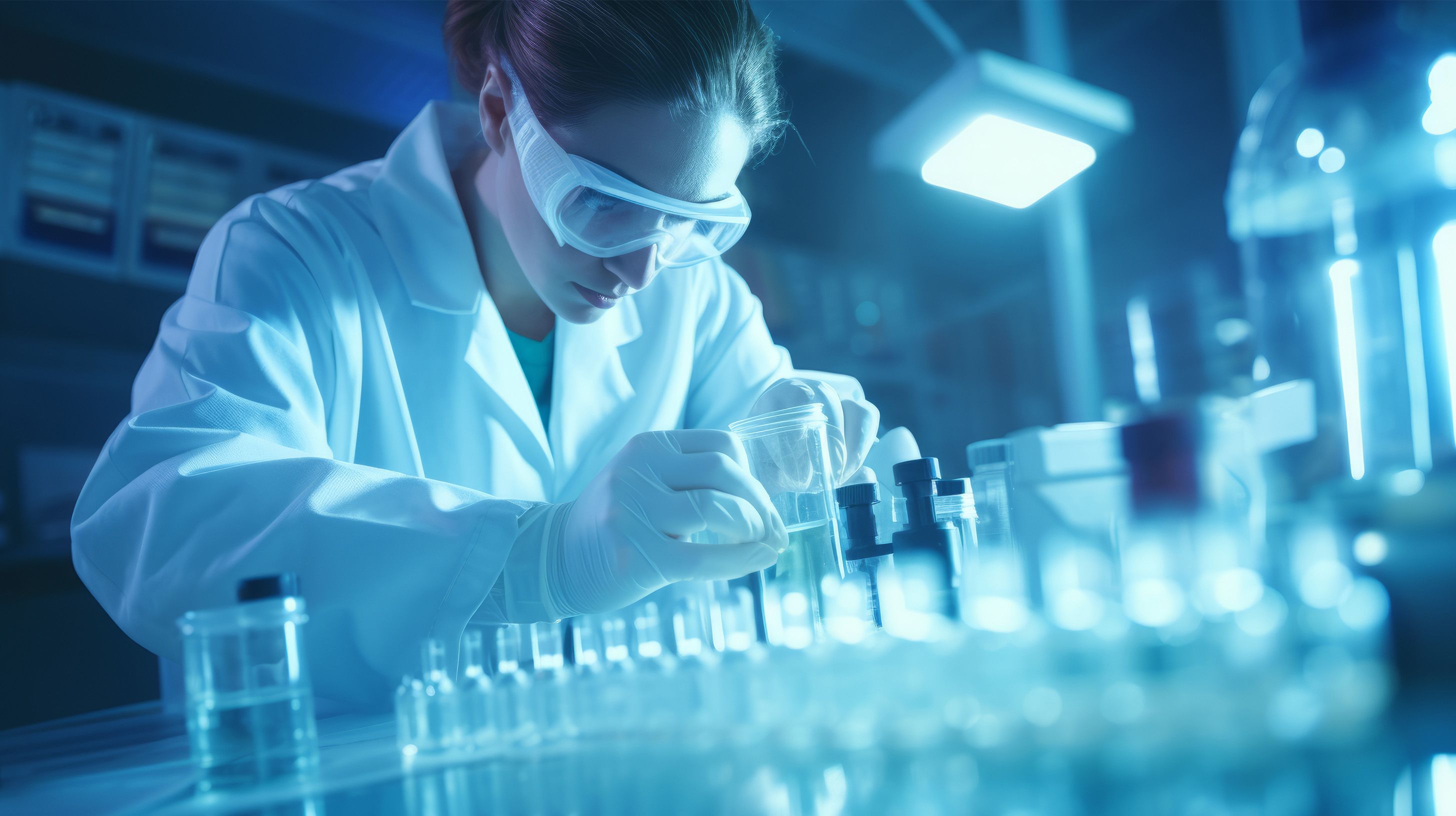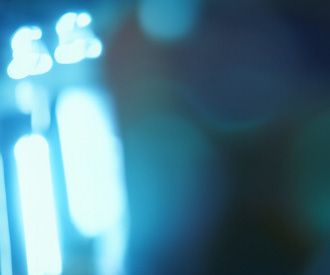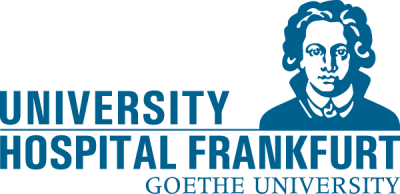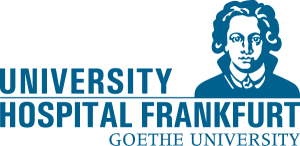
Rieger Lab
Your career starts
right here
Rieger Lab
Your career starts
right here
GOETHE UNIVERSITY
GOETHE UNIVERSITY
JOBS
The Department of Medicine 2, Hematology / Oncology at the Goethe University Hospital Frankfurt offers the entire spectrum of diagnostics and therapy of malignant diseases of the hematopoietic system. Special research interests are acute leukemias. It is part of the University Center for Tumor Diseases (UCT). This ensures high-level integrated treatment in the interdisciplinary planning of diagnostics, therapy, and care of tumor patients.
The Institute is also part of the German Cancer Consortium (DKTK), one of the six German Centers for Health Research (DZG), which is a joint initiative of the BMBF, the participating German states and the German Cancer Research Center (DKFZ). The alliance between the DKFZ as core center and the university partner sites in Berlin, Dresden, Essen / Düsseldorf, Frankfurt / Mainz, Freiburg, Heidelberg, München and Tübingen establishes joint translational cancer research units. The DKTK promotes interdisciplinary approaches and innovative clinical studies, which will contribute to improved prevention, diagnosis and faster implementation of personalized therapies for cancer patients.
The PhD student position (to aim for Dr. rer. nat. or equivalent) is currently available. The position is based in the experimental research laboratory of Prof. Dr. rer. nat. Michael Rieger at the Department of Medicine 2, Hematology/Oncology of the Goethe University Hospital Frankfurt. The renowned group is well-established in the local scientific community (e.g. Excellence Cluster Cardio-Pulmonary-Institute; Collaborative Research Center SFB834) and in national and international research consortia (e.g. German Cancer Consortium). For further information please visit www.rieger-lab.uni-frankfurt.de
The project aims for the elucidation of molecular and functional mechanisms that govern clonal dominance and therapy-resistance of premalignant hematopoietic stem cells and leukemia stem cells. Clonal hematopoiesis is currently a hot topic in precision medicine, since its strong association with cardiovascular and heart diseases. The dysregulation of self-renewal and differentiation caused by somatic mutations in blood cells also leads to blood disorders and leukemia, and therefore provide a window of opportunity for the development of advanced therapies against leukemia stem cells. The access to primary cells from patients is provided by the close collaboration with the clinical departments. We address central questions in hematopoiesis and leukemia with a large spectrum of modern cellular and molecular biology methods at single cell level, single cell RNA-Seq, multiparameter FACS cell sorting, novel time-lapse microscopy-based cell tracking, barcoding and relevant mouse models (Rieger et al., Science 2009; Haetscher et al., Nature Commun. 2015; Lang et al., Leukemia 2016; Bhayadia et al., JCO 2018; Dorsheimer et al. JAMA
Highly motivated candidates with an outstanding university degree (Diplom or Master) in biology, biochemistry or a related study will gain from a young dynamic international environment with scientific excellence. Fascination for modern biomedical research and enjoyment in experimental work are more relevant than previous work experience. However, experience in bioinformatic “omics” data handling and integration is a requirement. A strong background in stem cell biology, oncology or cell biology might be of advantage. Experience in multicolor FACS and/or mouse experimentation would be beneficial. A research visit abroad is possible due to many international collaborators.
As an equal opportunities employer, the Goethe University Hospital has set itself the strategic aim of significantly increasing the proportion of women in research and academia. Female scientists are therefore particularly encouraged to apply. Applications from abroad are especially welcome. Equally qualified candidates with disabilities will be given preference.
If you are interested in joining this ambitious team in an exciting field of oncology research, then please direct the complete application (only by email, one PDF file) including a cover letter, a brief summary of previous research experience and two references to
Prof. Dr. Michael Rieger,
Please do not send any original documents since we will not be able to return them.
The Department of Medicine 2, Hematology / Oncology at the Goethe University Hospital Frankfurt offers the entire spectrum of diagnostics and therapy of malignant diseases of the hematopoietic system. Special research interests are acute leukemias. It is part of the University Center for Tumor Diseases (UCT). This ensures high-level integrated treatment in the interdisciplinary planning of diagnostics, therapy, and care of tumor patients.
The Institute is also part of the German Cancer Consortium (DKTK), one of the six German Centers for Health Research (DZG), which is a joint initiative of the BMBF, the participating German states and the German Cancer Research Center (DKFZ). The alliance between the DKFZ as core center and the university partner sites in Berlin, Dresden, Essen / Düsseldorf, Frankfurt / Mainz, Freiburg, Heidelberg, München and Tübingen establishes joint translational cancer research units. The DKTK promotes interdisciplinary approaches and innovative clinical studies, which will contribute to improved prevention, diagnosis and faster implementation of personalized therapies for cancer patients.
The PostDoc position is available from now. The position is based in the experimental research laboratory of Prof. Dr. Michael Rieger at the Department of Medicine 2, Hematology/Oncology, of the Goethe University Hospital Frankfurt. The renowned group is well-established in the local scientific community (e.g. Excellence Cluster Cardio-Pulmonary-Institute; Collaborative Research Center SFB834) and in national and international research consortia (e.g. DKTK German Cancer Consortium). For further information please visit www.rieger-lab.uni-frankfurt.de
The third-party funded project aims for the elucidation of molecular and functional mechanisms that govern clonal dominance, evolution and therapy-resistance of leukemia stem cells. The dysregulation of self-renewal and differentiation leads to blood disorders and leukemia, and therefore provide a window of opportunity for the development of advanced therapies against leukemia stem cells. The access to primary cells from patients is provided by the close collaboration with the clinical departments. We address central questions in hematopoiesis and leukemia with a large spectrum of modern cellular and molecular biology methods at single cell level, state-of-the-art FACS cell sorting, genetic barcoding, novel time-lapse microscopy-based cell tracking and relevant mouse models (Rieger et al., Science 2009; Haetscher et al., Nature Commun. 2015; Lang et al., Leukemia 2016; Bhayadia et al., JCO 2018; Dorsheimer et al. JAMA Cardiol 2018).
Highly motivated candidates with an outstanding university degree (PhD or similar) in biology, biochemistry or a related study will gain from a young dynamic international environment with scientific excellence. An excellent publication record (at least one first-author article) is mandatory for the application. A strong background in blood research, stem cell biology, oncology or cell biology might be of advantage. Experience in complex multicolor flow cytometry and FACS sorting, in bioinformatic omics data integration, and in mouse experimentation would be beneficial. A research visit abroad is possible due to many international collaborators.
As an equal opportunities employer, the Goethe University Hospital has set itself the strategic aim of significantly increasing the proportion of women in research and academia. Female scientists are therefore particularly encouraged to apply. Applications from abroad are especially welcome. Equally qualified candidates with disabilities will be given preference.
If you are interested in joining this ambitious team in an exciting field of leukemia stem cell research, then please direct the complete application (only by email, one PDF file) including a cover letter, a brief summary of previous research experience and two references to
Prof. Dr. Michael Rieger,
Please do not send any original documents since we will not be able to return them.
































